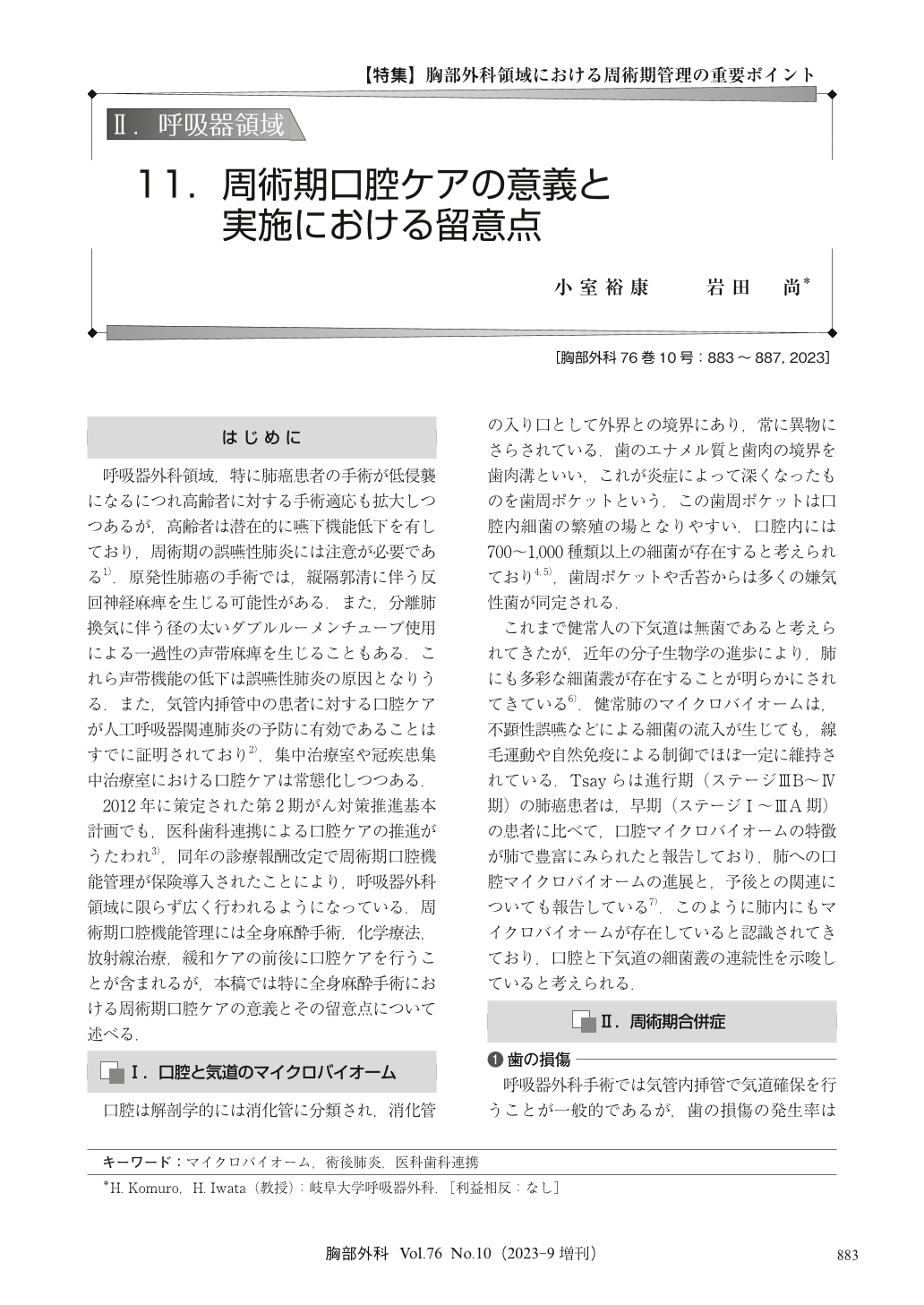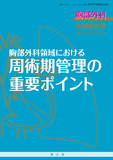Japanese
English
- 有料閲覧
- Abstract 文献概要
- 1ページ目 Look Inside
- 参考文献 Reference
呼吸器外科領域,特に肺癌患者の手術が低侵襲になるにつれ高齢者に対する手術適応も拡大しつつあるが,高齢者は潜在的に嚥下機能低下を有しており,周術期の誤嚥性肺炎には注意が必要である1).原発性肺癌の手術では,縦隔郭清に伴う反回神経麻痺を生じる可能性がある.また,分離肺換気に伴う径の太いダブルルーメンチューブ使用による一過性の声帯麻痺を生じることもある.これら声帯機能の低下は誤嚥性肺炎の原因となりうる.また,気管内挿管中の患者に対する口腔ケアが人工呼吸器関連肺炎の予防に有効であることはすでに証明されており2),集中治療室や冠疾患集中治療室における口腔ケアは常態化しつつある.
With the development of minimally invasive surgery for lung cancer, surgical indications for elderly patients have been increasing. However, elderly patients are at risk for aspiration pneumonia, which is accompanied by a decline in swallowing function and results in aspiration pneumonia. More than 700-1,000 species are present in the oral microbiome, and the progression of the oral microbiome to the lung has been reported to be associated with poor prognosis. Perioperative complications include dental injuries associated with intubation for general anesthesia and postoperative pneumonia. Preoperative tooth extractions and mouth protectors are effective in preventing dental injuries. Perioperative oral care is often reported to be effective in preventing postoperative pneumonia by removing dental calculus and plaque and cleaning the tongue and stimulating saliva production. Oral care should be continued after as well as before surgery to avoid delaying adjuvant therapy. If the hospital performing the surgery has the department of dentistry and oral surgery, oral care can be completed in the hospital. However, if the hospital does not have that department, it is necessary to collaborate with a local dental clinic in various ways.

© Nankodo Co., Ltd., 2023


